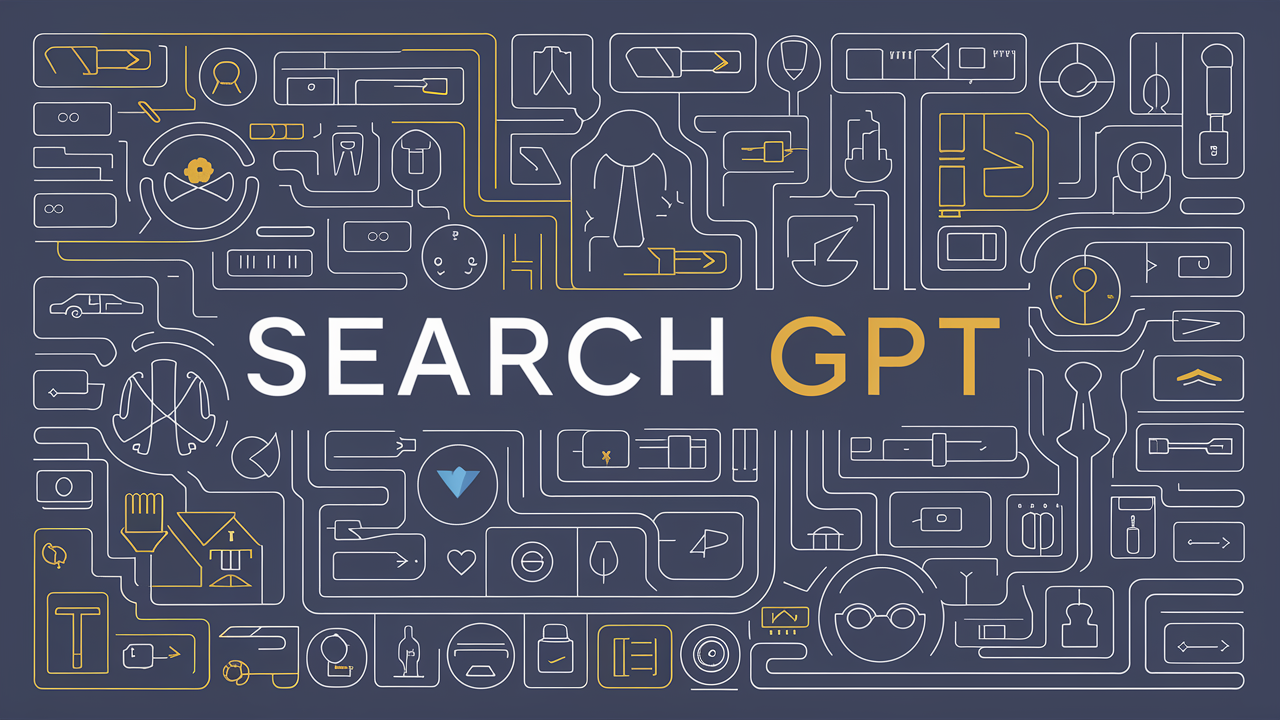
Join the SearchGPT Waitlist
SearchGPT, developed by OpenAI, is currently in a prototype phase. Be among the first to experience this revolutionary AI-powered search engine!
Join the SearchGPT WaitlistIntroducing SearchGPT: OpenAI's Next-Gen Search Engine
OpenAI has unveiled SearchGPT, a groundbreaking prototype that combines the power of AI language models with real-time web information. This innovative search engine aims to provide users with fast, accurate, and contextually relevant answers to their queries, showcasing the potential of ChatGPT's technology in revolutionizing online search.
Preview SearchGPT
Key Features of SearchGPT
Conversational Interface
Engage in natural, flowing conversations with SearchGPT for a seamless search experience powered by OpenAI.
Direct Answers
Get concise, relevant responses from SearchGPT instead of scrolling through lists of links.
Source Attribution
Clear, in-line citations ensure transparency and credibility in SearchGPT's responses.
Real-time Information
Access the most up-to-date information from across the web.
What is SearchGPT? AI-Powered Search Revolution
SearchGPT represents a significant leap in search technology, leveraging OpenAI's expertise in AI to deliver a more intuitive and efficient search experience. By combining the strengths of OpenAI's AI language models with up-to-date web information, SearchGPT aims to transform how users interact with and discover information online, setting a new standard for AI-driven search engines.
The Future of Search: OpenAI's Vision with SearchGPT
As SearchGPT evolves, it has the potential to reshape the search engine landscape, impacting digital marketing, content creation, and user behavior. While still in its prototype phase, this AI-powered search engine represents a glimpse into the future of information discovery and retrieval. With SearchGPT, OpenAI is poised to redefine how we interact with information online, setting new standards for AI-driven search technologies.
Publisher Partnerships for SearchGPT
OpenAI is committed to working closely with publishers, offering tools to manage their content's appearance in SearchGPT. This collaboration ensures a balance between OpenAI's innovative AI technology and the interests of content creators, fostering a healthy digital ecosystem for SearchGPT users.
SearchGPT Pricing
Currently, you need to join the waitlist to experience SearchGPT, and the pricing is unknown. OpenAI has not yet disclosed any plans for future pricing, but it is possible that it may remain free when fully launched to the public.
Alternative to SearchGPT
You.com
You.com is an AI-powered search engine that offers personalized search results and integrates various AI tools for different tasks.
Google Search AI Overview
Google Search AI Overview uses advanced AI to provide comprehensive and relevant search results, integrating with Google's extensive database and tools.
Neeva
Neeva is an ad-free, subscription-based search engine that uses AI to provide personalized and privacy-focused search results.
Andi
Andi is an AI-powered search engine that focuses on providing direct answers to queries and a more conversational search experience.
Phind
Phind is an AI search engine tailored for developers, helping them quickly find solutions to coding problems.
Kagi
Kagi is a premium search engine that offers an ad-free experience with a focus on high-quality, relevant search results.
ChatGPT (with Browsing)
While primarily a conversational AI, ChatGPT with browsing capabilities can be used to search the web and provide detailed answers to queries.
Google Bard
Google's AI-powered search assistant that provides conversational search capabilities and integrates with Google's vast knowledge base.
SearchGPT vs. Perplexity AI
While both SearchGPT and Perplexity AI aim to enhance search capabilities using AI, they have distinct approaches:
SearchGPT
- • Focuses on conversational search experience
- • Provides direct answers with source attributions
- • Leverages OpenAI's publisher partnerships for quality results
- • Emphasizes real-time web information retrieval
Perplexity AI
- • Offers multimodal capabilities (text, image, data analysis)
- • Provides advanced filtering and Pro Search features
- • Utilizes multiple search engines and databases
- • Focuses on comprehensive research capabilities
SearchGPT vs. Google Search
SearchGPT's introduction by OpenAI could potentially have significant impacts on Google Search:
Market competition
SearchGPT directly challenges Google's dominance in the search market, which currently holds about 90% market share. This increased competition could force Google to innovate and improve its services.
User experience
SearchGPT aims to provide faster and easier access to information through conversational capabilities and real-time web information. This could set new user expectations for search engines, pressuring Google to enhance its own user experience.
Traffic redistribution
AI-generated overviews like those provided by SearchGPT could potentially reduce traffic to publisher websites. A study suggests that such features could negatively affect about 25% of publisher traffic. This might force Google to reconsider its approach to presenting search results.
Advertising revenue
If SearchGPT gains significant market share, it could impact Google's primary revenue source - search advertising. Google earned $175 billion from search in 2023, and any shift in user behavior could affect this income stream.
AI integration
SearchGPT's use of advanced AI models may push Google to further integrate AI into its search functions, potentially accelerating the development of Google's own AI-powered search features like Search Generative Experience (SGE).
Publisher relationships
OpenAI's approach of working with publishers and providing clear attribution may set new standards for how search engines interact with content creators, potentially influencing Google's policies.
Legal and ethical considerations
As SearchGPT enters the market, it may face similar legal challenges as Google regarding copyright and fair use of content. This could lead to new industry standards or regulations affecting all search engines.
Search result presentation
SearchGPT's more concise answers and limited results could influence user preferences, potentially pushing Google to adapt its result presentation style.